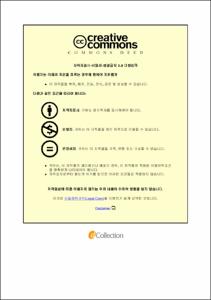조직구성원의 직업윤리의식이 직무몰입도 및 직무만족도에 미치는 영향
- Abstract
- The purpose of this study is to learn about the effect of the sense of work ethic on the members of an organization, even in occupations other than the specific work areas conducted in the preceding study. In particular, we wanted to find out how common it is to various professions and how it affects job immersion and job satisfaction, which are factors that generally represent organizational effectiveness in an organization.
The subjects of the study were adults in their 20s and 50s who lived or worked in Busan and Gyeongsangnam-do, and 350 copies were distributed to collect 311 copies, and 309 copies were used for final analysis, excluding missing or insincere responses among the collected questionnaires.
The data analysis method used IBM SPSS 21.0. The analysis of the sense of occupational ethics, job immersion and job satisfaction of the members of the organization used t-test and one-way ANVOA, which are average differences, to examine the differences in occupational ethics, job immersion, and job satisfaction according to the general characteristics of the members of the organization (sex, industry, service period, work type, monthly income and educational background). Correlational Analysis was conducted to analyze the relationship between the sense of duty ethics, job immersion and job satisfaction of the members of the organization. The analysis of whether the sense of occupational ethics of the members of the organization affects the level of job immersion and job satisfaction was conducted.
Research results show that both job immersion and job satisfaction are static related, while job immersion and job satisfaction are also static. These results indicate that the sense of work ethics, job immersion, and job satisfaction are correlated between the variables. The impact of occupational ethics on job immersion and job satisfaction were also statistically significant, all of which had a static impact.
In this study, we only measured the status of job ethics, job immersion, and job satisfaction of the members of the organization using questionnaires, but did not seek effective job ethics awareness, job immersion, measures to enhance job satisfaction, or methods of education. Based on this study, research on effective vocational ethics education models will be required.
- Issued Date
- 2020
- Awarded Date
- 2020. 8
- Type
- Dissertation
- Publisher
- 부경대학교
- Affiliation
- 부경대학교 대학원
- Department
- 대학원 교육컨설팅학과
- Advisor
- 주동범
- Table Of Contents
- Ⅰ. 서론 1
1. 연구의 필요성 및 목적 1
2. 연구 문제 8
3. 용어의 정의 8
가. 조직구성원 8
나. 직업윤리의식 9
다. 직무몰입도 9
라. 직무만족도 10
Ⅱ. 이론적 배경 11
1. 직업윤리의식 11
가. 직업윤리의식의 개념 11
나. 직업윤리의식의 구성요소 13
2 직무몰입도 17
가. 직무몰입도의 개념 17
나. 직무몰입도의 구성요소 19
3. 직무만족도 21
가. 직무만족도의 개념 21
나. 직무만족도의 구성요소 22
4. 직업윤리의식과 직무몰입도의 관계 25
5. 직업윤리의식과 직무만족도의 관계 26
Ⅲ. 연구 방법 28
1. 연구대상 28
2. 측정도구 30
가. 직업윤리의식 30
나. 직무몰입도 32
다. 직무만족도 33
3. 자료 수집 절차 34
4. 자료 분석 방법 35
Ⅳ. 연구 결과 36
1. 기술통계 36
2. 평균 차이 검증 37
가. 일반적 특성별에 따른 직업윤리의식 차이 38
나. 일반적 특성별에 따른 직무몰입도 차이 40
다. 일반적 특성별에 따른 직무만족도 차이 42
3. 상관분석 44
4. 단순 및 중다회귀분석 46
가. 직업윤리의식이 직무몰입도에 미치는 영향 46
나. 직업윤리의식이 직무만족도에 미치는 영향 48
Ⅴ. 논의 및 결론 51
참고문헌 57
부록 64
설문지 64
- Degree
- Master
- Files in This Item:
-
-
Download
 조직구성원의 직업윤리의식이 직무몰입도 및 직무만족도에 미치는 영향.pdf
기타 데이터 / 520.97 kB / Adobe PDF
조직구성원의 직업윤리의식이 직무몰입도 및 직무만족도에 미치는 영향.pdf
기타 데이터 / 520.97 kB / Adobe PDF
-
Items in Repository are protected by copyright, with all rights reserved, unless otherwise indicated.